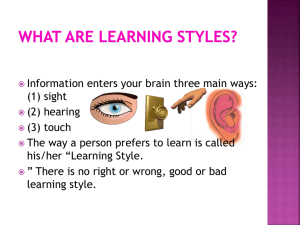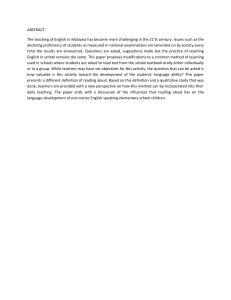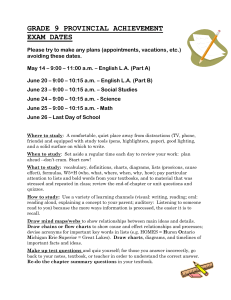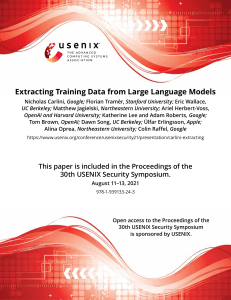Memory Tips for Students By: Anne Hoover (2009)
advertisement
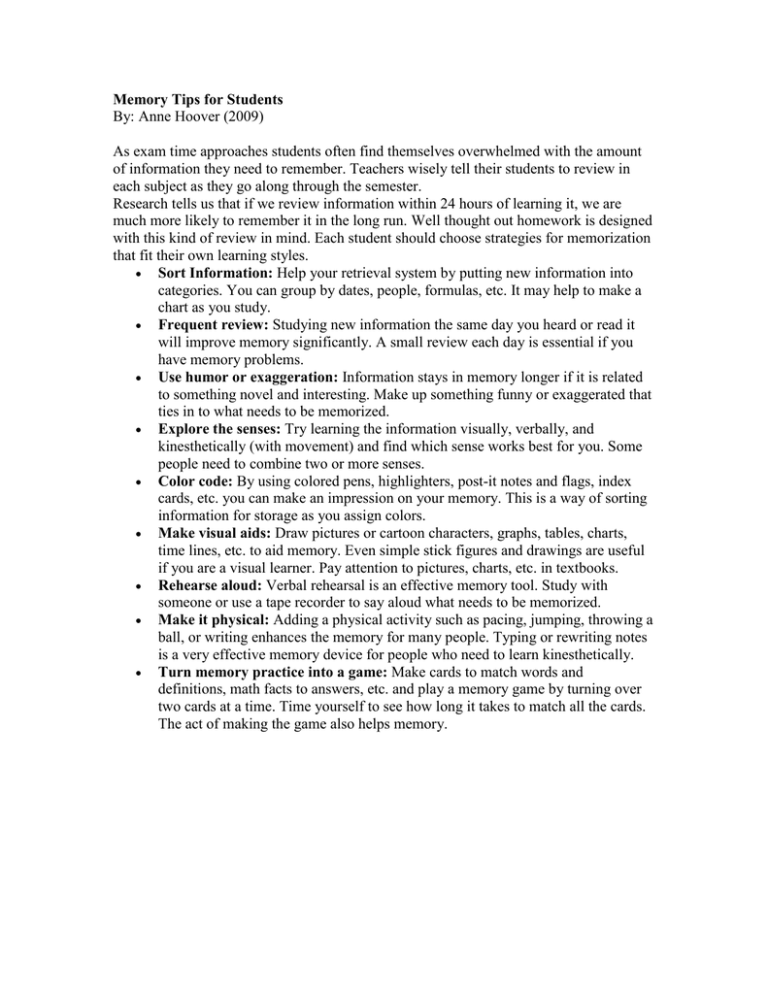
Memory Tips for Students By: Anne Hoover (2009) As exam time approaches students often find themselves overwhelmed with the amount of information they need to remember. Teachers wisely tell their students to review in each subject as they go along through the semester. Research tells us that if we review information within 24 hours of learning it, we are much more likely to remember it in the long run. Well thought out homework is designed with this kind of review in mind. Each student should choose strategies for memorization that fit their own learning styles. Sort Information: Help your retrieval system by putting new information into categories. You can group by dates, people, formulas, etc. It may help to make a chart as you study. Frequent review: Studying new information the same day you heard or read it will improve memory significantly. A small review each day is essential if you have memory problems. Use humor or exaggeration: Information stays in memory longer if it is related to something novel and interesting. Make up something funny or exaggerated that ties in to what needs to be memorized. Explore the senses: Try learning the information visually, verbally, and kinesthetically (with movement) and find which sense works best for you. Some people need to combine two or more senses. Color code: By using colored pens, highlighters, post-it notes and flags, index cards, etc. you can make an impression on your memory. This is a way of sorting information for storage as you assign colors. Make visual aids: Draw pictures or cartoon characters, graphs, tables, charts, time lines, etc. to aid memory. Even simple stick figures and drawings are useful if you are a visual learner. Pay attention to pictures, charts, etc. in textbooks. Rehearse aloud: Verbal rehearsal is an effective memory tool. Study with someone or use a tape recorder to say aloud what needs to be memorized. Make it physical: Adding a physical activity such as pacing, jumping, throwing a ball, or writing enhances the memory for many people. Typing or rewriting notes is a very effective memory device for people who need to learn kinesthetically. Turn memory practice into a game: Make cards to match words and definitions, math facts to answers, etc. and play a memory game by turning over two cards at a time. Time yourself to see how long it takes to match all the cards. The act of making the game also helps memory.
